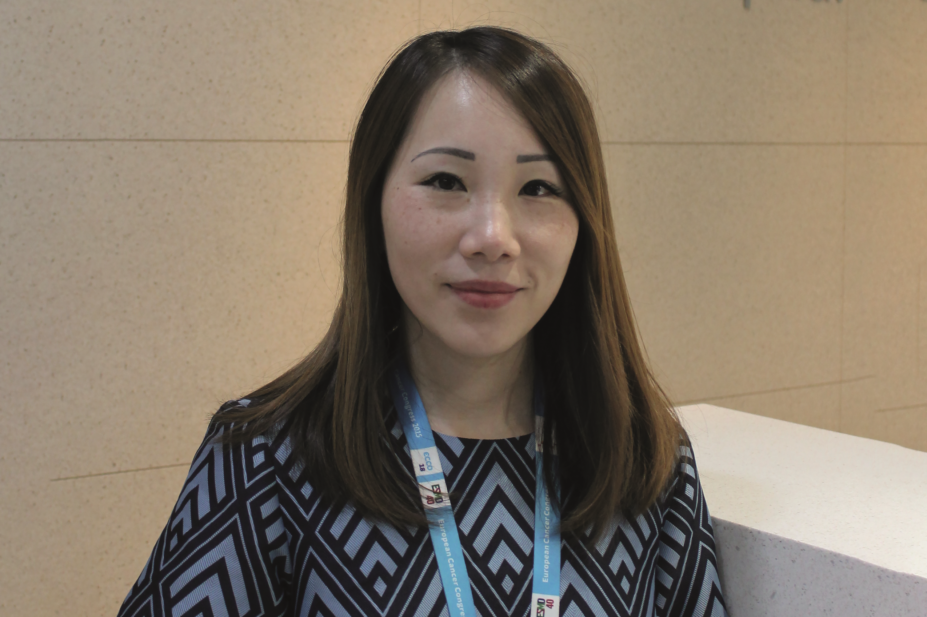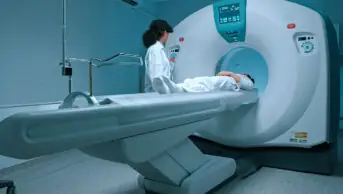
Courtesy of Davina Lau
Davina Lau is lead pharmacist, oncology, at London Bridge Hospital, a private hospital owned by HCA Healthcare UK.
Why did you decide to go into hospital pharmacy?
I had a taste of hospital pharmacy as an intern pharmacist (preregistration trainee) in New Zealand so when an opening for a hospital position in Australia came up with an oncology rotation, I applied for it. Back then, few pharmacists were interested in oncology and interns were a novelty because there were so few of us. I went into hospital pharmacy primarily because I was interested in oncology — it was different from what we were exposed to as students and interns.
How and why did you become an oncology specialist?
I spent several years working in different hospitals in different countries as an oncology, haematology, aseptic and palliative care pharmacist. I also undertook postgraduate courses and attended plenty of after-hour lectures, seminars and conferences in oncology and haematology. I was interested in oncology because I believed it was where a pharmacist could make a significant impact on the wards.
Oncology patients have limited chances at fighting their disease, and every opportunity they have is an important one. As patients come back for their treatments every fortnight or every three weeks, you build a relationship with them and their families and it becomes a personal journey for the pharmacist too. You become an unofficial counsellor, proverbial punching bag and cheerleader, as well as being their pharmacist. Survival rates have increased since I was an intern, and it is gratifying to be able to tell patients that we have a plethora of agents now to help them fight their disease.
What are your responsibilities and typical tasks in your current role?
Our team is relatively small so my role still requires me to complete operational tasks on most days. With the help of senior oncology pharmacists, I oversee the daily running of the inpatient ward, aseptic suite, chemo day unit and any oncology-associated processes in the dispensary.
As an independent prescriber in the chemotherapy day unit, I see patients and assess their side effects related to chemotherapy. If an existing treatment is being continued, I prescribe medicines within my scope of practice. If I need a second opinion, I contact the consultant to discuss options. Once decided, I prescribe according to the outcome of our discussion. This includes chemotherapies with doses that change depending on renal or hepatic function. Everything is documented on MOSAIQ (our electronic prescribing system) so that there is an accessible audit trail.
One thing we do differently compared with other hospitals (private or NHS) is that we aim to see and counsel every patient for each cycle of chemotherapy, and we frequently field telephone calls from discharged patients with any subsequent queries they may have regarding issues they have with their GP or at home. We also handle medication information enquiries from consultants in the hospital and from the NHS.
What is the most interesting part of your job?
We all work closely with the consultants because we only have one oncology resident medical officer (RMO), so we discuss patients and issues on a daily basis, which is a great learning environment for us.
Since we are a private hospital, we do not only follow guidance from the National Institute of Health and Care Excellence, but also from the US Food and Drug Administration and European Medicines Agency, which means we have more options available. It also keeps us on our toes because we have to do our own evaluation of the literature and data.
The HCA Healthcare UK’s Lead Oncology Pharmacists group is a great sounding board for discussion and review of this data, as well as our various tumour and haematology boards. Cost is not a barrier to treatment for our patients so we are one of the first few hospitals to use granisetron patches and we also use the netupitant/palonosetron combination upfront for highly emetogenic regimens, among other things.
What is the most difficult part of your job?
What do you say to a seven-year-old son of a terminally patient who asks you: “Is my mummy dying?” Despite all the success figures trotted out by trials, it is the individual stories of spending their first of many Christmases without mum or dad that serve as a stark reminder that we still have a long way to go before we can cure cancer.
How is working in a private hospital different from working in an NHS hospital?
The private hospital experience is more personalised because we do not have the deluge of patients the NHS has and we get to spend more time with them. Consultants, nurses, physiotherapists, pharmacists and even the chefs have more time for each patient.
We have patients from the NHS who are surprised to see pharmacists in the chemotherapy day unit or on discharge. Having worked in the NHS previously and having shadowed my independent prescribing supervisor in NHS clinics, it is the lack of resources and the sheer number of patients the NHS has to cope with that prevents them offering the same service.
The other difference is that we get a lot of patients from different countries: from the Middle East, the Americas, Africa, Europe and Asia. This means that we have to be culturally sensitive to their customs and religious observations. For example, we pay attention to halal foods or nutritional supplements, have prayer rooms on different floors, and ensure female staff are assigned to female patients. This multicultural diversity is also reflected in our staff because we have nurses from different parts of the world who speak the languages of these patients. It is an interesting lesson in multiculturalism and speaks volumes of how highly regarded British healthcare is around the world that these patients are willing to fly here.
What are your career plans for the future?
With the centralisation of NHS services on NHS England’s agenda and potential budget cuts looming, the NHS is under even more strain to provide exceptional care to over 64 million people in the UK. There is existing infrastructure and expertise in place in the UK to help bridge the gap in services — and using the large number of private hospitals in the UK as a resource is a viable and pragmatic solution.
In Australia, I was a clinical services manager for a 700-bed private hospital with a 24-hour emergency department. These large private hospitals worked alongside the NHS system to reduce pressure and increase access to vital healthcare services. This also helps reduce the pressure on the primary healthcare system: same-day GP appointments are the norm in Australia. France and Germany have similar systems that amalgamate public and private systems to optimise healthcare outcomes for its citizens.
My interest lies in improving joint venture outcomes between public and private healthcare sectors, improving access to healthcare, increasing funding for research and cutting-edge health technology by making the healthcare system more self efficient and self sufficient and hence less susceptible to the winds of political and economic change.


